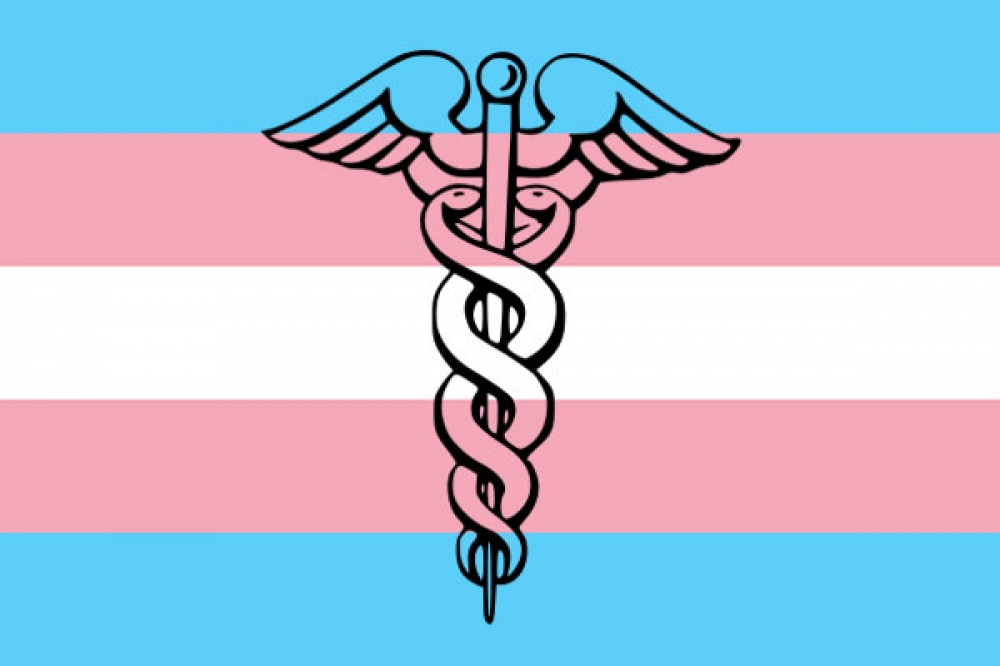Erasure of gender minority people is a defining characteristic cisgender systems operate, as they assume anyone outside the binary is impossible (Namaste, 2000). Since gender minorities are erased, when one turns up in real life, say at a doctor’s office, a social emergency occurs, usually resulting in a cascade of microaggressions to letting you know you are abnormal and will soon be rendered invisible. I mean, how can someone expect to be cared for when they are appearing for the first time? That would be like a unicorn showing up for veterinary care and expecting staff to provide knowledgeable care.

My phone call with a person named Cathy, who works at Dr. David Levy’s office, was a prime example of this erasure as a person and a focus on my transess alone. Ostensibly, Cathy was phoning me to prepare the file for Dr. Levy in advance to my initial visit. I had no idea about her qualifications and why she was entitled to be asking me personal medical questions, but she left me a message threatening to cancel my long-awaited appointment with Dr. Levey unless I answered them. After routine questions like health care card and address, Cathy said, “So are you a trans?” I was stunned into silence for a beat, then I said, “Do you mean a trans man? Yes, I am.” Transgender is an adjective which must be used with a modifier, like a noun, and is a word that clarifies something about the noun. So, saying I’m a trans man clarifies something about me, but stating I am a trans reduces my humanity to one quality and effectively erases me.Here we see how language reflects the cisgenderism that diminishes and erases trans people like me. I was very upset about this reductiveness and the dismissiveness that Cathy showed when bringing this up. I wonder if she asks other clients “Are you a cis?”

Cathy went on to other questions (none asking about my pronouns BTW), and I interrupted her and asked her how I was outed as trans. Cathy said my Nurse Practitioner (NP) filled out the referral asking Dr. Levy to please see this trans male patient for the stated issue. Cathy stated it was my NP’s fault for outing me in a note directed to Dr. Levy but read by her. I asked why Cathy had brought it up and she indignantly said, “It is so I can address you properly. “ I was too frightened to ask her, based on her threatening to cancel me earlier, if she asked all patients their gender or just me. I did ask her that if my file said trans male wouldn’t it stand to reason that I used male pronouns? I am sad Cathy was able to latch on hard to the trans word in my file but not get a grip on the male word. It’s like that word trans erases all other information about for some, so maybe Cathy was right to reduce me to that word – a trans.
I texted my nurse practitioner that I was outed through her notes , and she was apologetic but said that those notes were for the doctor and not for office staff to call me up and discuss on the phone. There was no pertinent reason that required Cathy to ask me about being trans other than to spotlight my difference. My NP was upset that Cathy did this and will also complain to Dr. Levy (I will update you on this later…)

Cathy could have used my name or asked me my pronouns if addressing me correctly was the concern. Even better, she could have given me her full name and offered her pronouns as well. None of this happened. Instead, she asked me if I was a trans. It is also common cisgender microaggression to assume trans folks must answer questions about their identity those cisgender folx would not have to. The underlying message is that trans people should explain themselves as they are so different, and the onus is on the minority to explain themselves and educate.

It is my lived experience that trans realities are ignored, erased or de-legitimized by people acting as if trans experiences are nebulous, shifting or ill-defined and therefore hard to take into account. A simple google search rapidly produces results. Lighthouse LGBTQ Inc (2022) provides some good guidelines that all practitioners would do well to attend to :” Trans patients are entitled to the same privacy as any other patient. Asking intrusive questions – especially ones you wouldn’t ask cisgender patients — is invasive and sensationalizing. This includes asking questions about gender identity, sexual activity, or surgeries if those questions have nothing to do with a patient’s care. It is important to be constantly mindful of why certain questions are asked.”
It is noted that microaggressions, though perhaps unintended, have a significant impact on patient experience and can serve as a deterrent to patients seeking care (Lighthouse LGBTQ Inc., 2022). I told my nurse practitioner I was afraid to go see Dr. Levy, but I really needed the care. Writing this blog helps, as well as presenting it to him after our meeting to hopefully address the transphobic microaggressions from his staff.
Lighthouse LGBT Inc. (2022). 7 trans microaggressions that result in Trans Healthcare Discrimination. Lighthouse. https://blog.lighthouse.lgbt/transgender-healthcare-microaggressions/
Namaste, V. K. (2000). Invisible lives: the erasure of transsexual and transgendered people. Chicago (Ill.): University of Chicago press.
